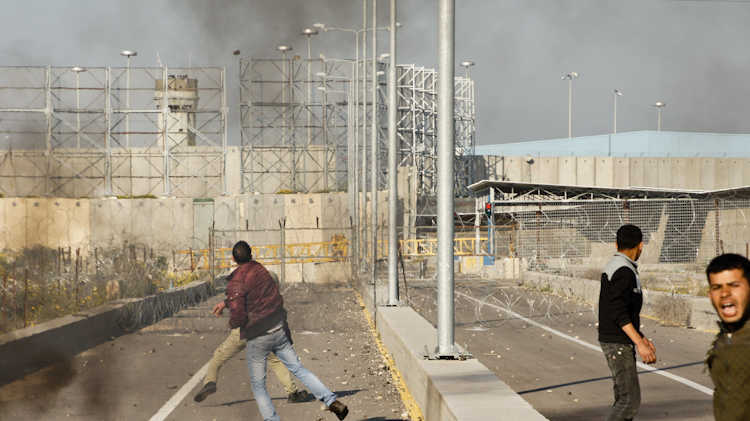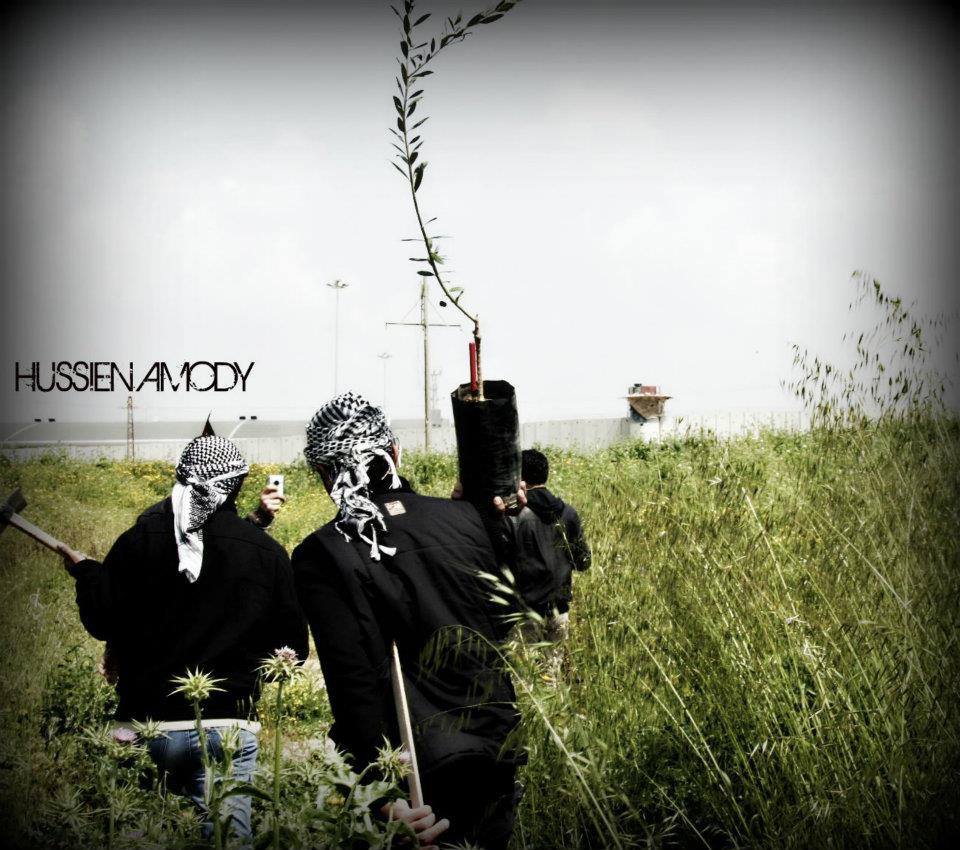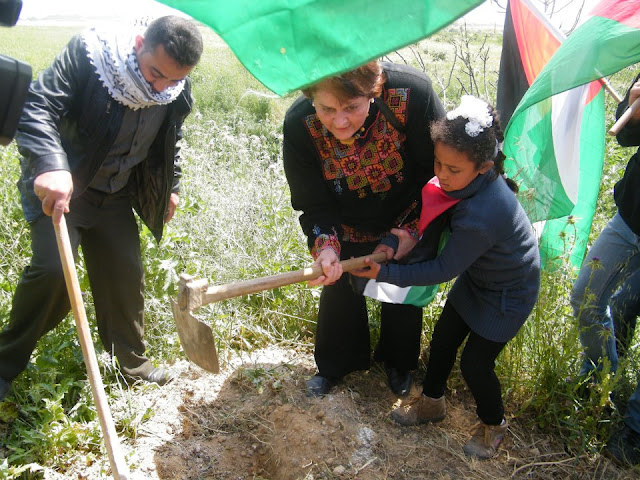Category: Journals
-
The march from Erez to the iron doors of Al Aqsa
by Nathan Stuckey 30 March 2012 | International Solidarity Movement, Gaza Sometimes, the more things change the more they stay the same. On March 30, 1976 during protests against the confiscation of Palestinian land, Israel killed six protesters, injured over one hundred and arrested hundreds more. This was the first Land Day. Every year for…
-
Land Day: From Gaza to Sakhnin we are all united with Bil’in
by Nathan Stuckey 27 March 2012 | International Solidarity Movement, Gaza Thirty six years ago on March 30th 1976 demonstrations against the confiscation of Palestinian land by the Israeli government spread throughout Palestine. Six Palestinians were killed, over a hundred wounded, and hundreds more arrested. Land day was one of the first large mobilizations of…
-
Beit Hanoun: Celebrating the land and culture of Palestine
by Nathan Stuckey 29 March 2012 | International Solidarity Movement, Gaza Today, Beit Hanoun celebrated Land Day. It is true that Land Day isn’t really until tomorrow, but tomorrow is the Global March to Jerusalem, tomorrow, God willing, Land Day can be celebrated on the land from which the refugees were expelled 64 years ago.…



